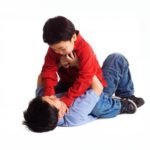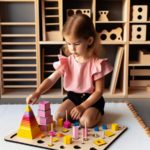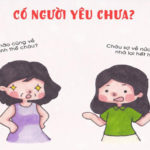If chosen, parents certainly want their children to play with good friends. It is easy to understand that good friends will help children develop and improve themselves. However, if children play with bad friends, they may be negatively influenced, leading to a decline in their academic performance. In particular, these 3 types of friends can have a negative impact on your child, so parents need to pay close attention.
Type 1: Friends who don’t like studying

These types of friends can distract your child from focusing on their studies, resulting in declining academic performance.
Type 2: Friends who bully and isolate others
Some children at school enjoy bullying, intimidating, or isolating their classmates. They don’t need a reason, as long as they feel uncomfortable or dissatisfied, they will incite others to gang up on their friends. If your child plays with such friends, they will be distracted and psychologically affected. This will also affect their academic performance. In extreme cases, your child might even learn from these bad friends and start bullying other classmates.
Type 3: Friends who envy and compare themselves to others
Every child has their own personality. There are those who like to strive together for improvement, but there are also those who are envious and constantly compare themselves to others. For example, when someone in the class has a new backpack, a new hairstyle, or achieves a high score in a test, the envious child will immediately start comparing and criticizing, trying to suppress and undermine the classmate, even though deep down they might want to have those things too. There are also children who imitate others whenever someone has something new or interesting, just to satisfy their inner need for comparison.
When children have these types of friends, their minds will be filled with thoughts of comparison, making it difficult for them to concentrate on their studies.
Experienced teacher notices that children with these two characteristics are often intelligent and top of the class, does your child have them?
According to ancient wisdom, it was believed that the personality traits of an individual can be predicted by observing them at the age of 3. Similarly, experienced preschool teachers often claim that children who possess these two qualities tend to excel in their academic pursuits when they grow up.



































